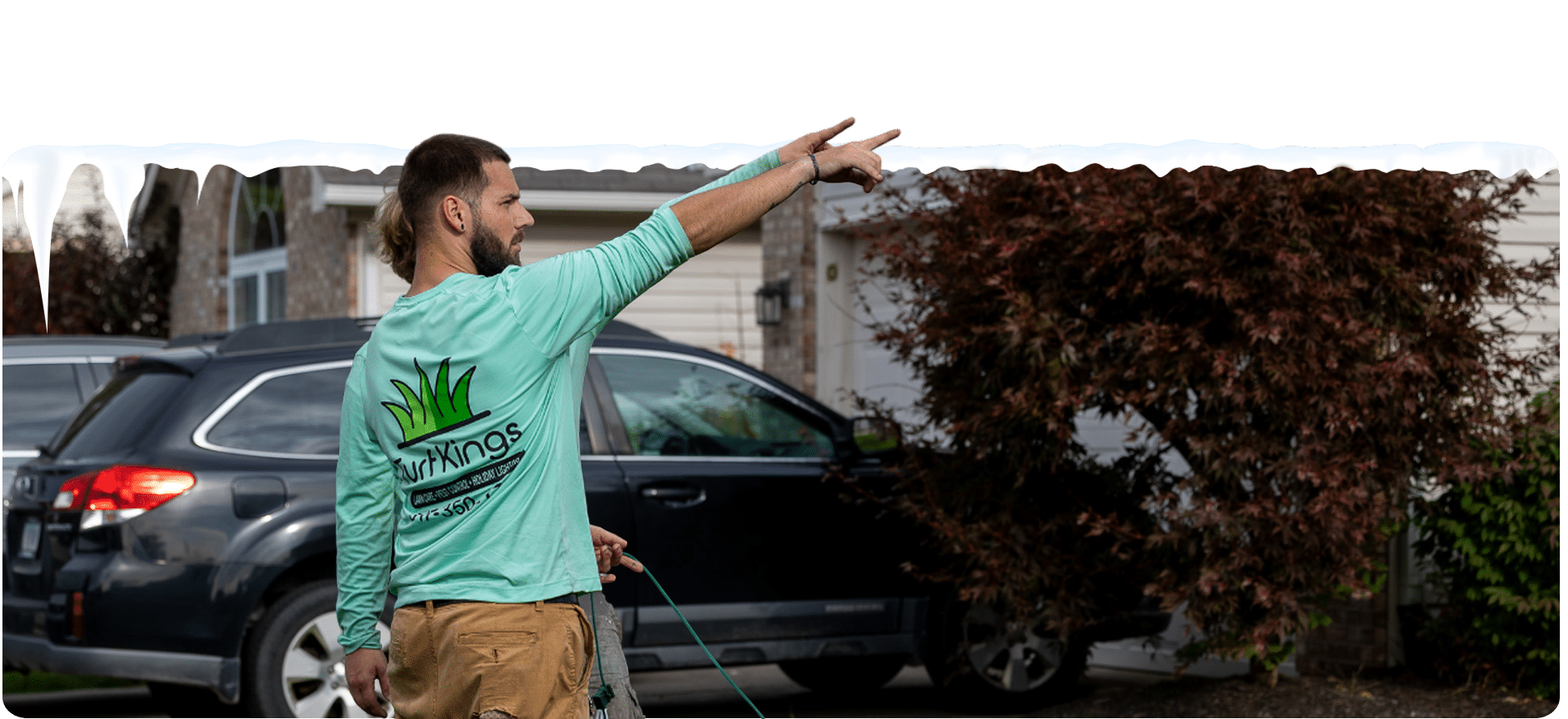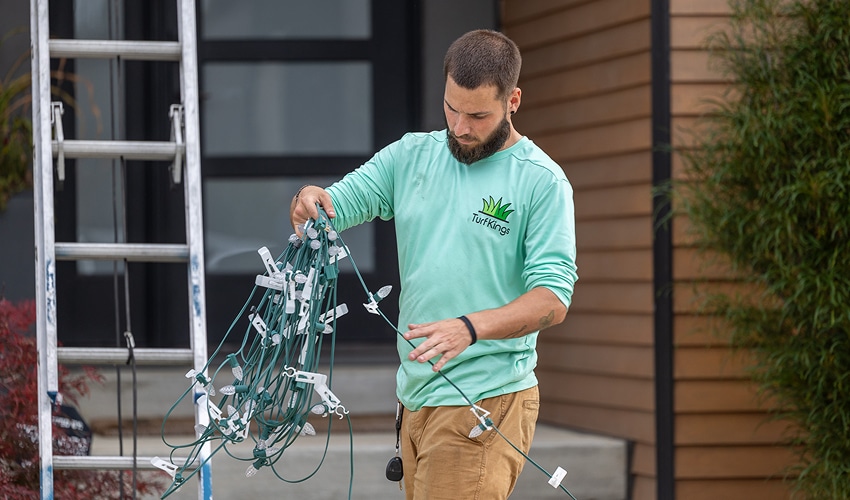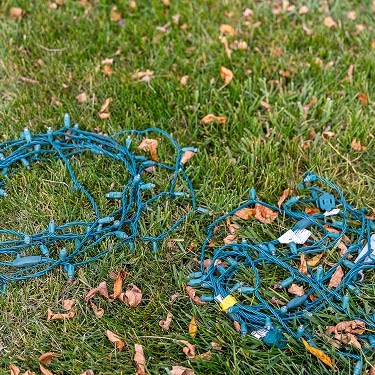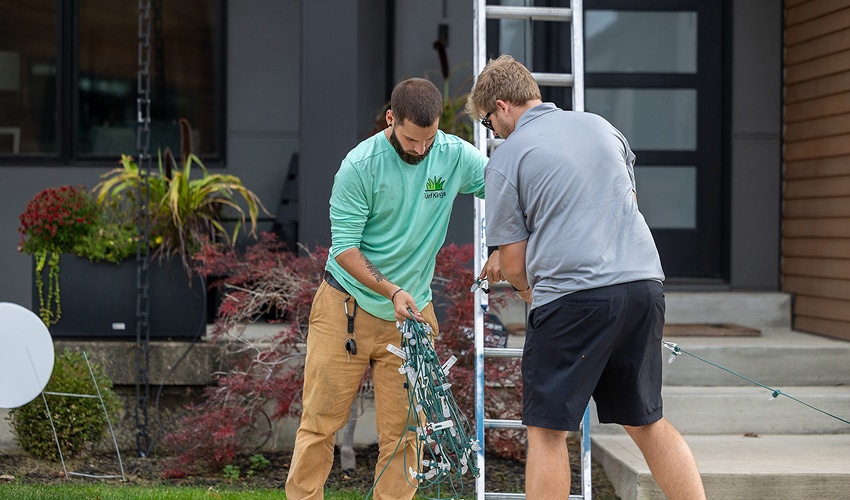Lighting Safety Tips
At Christmas Light Kings, we believe every home and business deserves to shine during the holidays.
Get a fast quote, check availability, or ask a question—our local team is ready to help.

#1 Check Your Lights Before Hanging

Before you start decorating, take a few minutes to carefully inspect your holiday lights. Look for any frayed wires, cracked sockets, broken bulbs, or loose connections even small damage can create a fire hazard or cause your lights to stop working once
they’re up.
Pay special attention to older light sets that may have weakened insulation or outdated wiring. If a strand looks worn out or flickers when plugged in, it’s safer to replace it than risk an electrical problem.
Also, check the manufacturer’s label to ensure the lights are still rated for safe use. Many people reuse holiday lights for years, but just like any electrical item, they have a lifespan. Investing in newer, UL-certified LED lights can save energy and provide extra peace of mind during the season.
#2 Use Outdoor Lights for Exterior Décor
When decorating the outside of your home, always make sure the lights you choose are specifically rated for outdoor use. Indoor lights are not built to withstand weather conditions like rain, snow, and freezing temperatures. If you hang them outdoors, the insulation can crack, wires may get exposed, and moisture can seep in creating a serious risk of short circuits, electric shocks, or even fire.
Outdoor-rated lights, on the other hand, are designed with stronger insulation, waterproof seals, and durable materials that resist harsh weather. They’re also tested for safety standards, so you can be confident they’ll perform well all season long.
#3 Don’t Overload Electrical Outlets
One of the most common causes of holiday-related electrical fires is overloaded outlets. Each outlet is designed to handle a limited amount of electrical current, and plugging in too many light strands, inflatable decorations, or extension cords can exceed that limit.
Most holiday light sets indicate the balancing maximum number of strands that can be safely connected end-to-end. For example, traditional incandescent lights usually allow only 3–4 strands together, while LEDs can often handle 20 or more.
Instead of plugging everything into one outlet, distribute your decorations across multiple circuits around your home.

Plugging multiple extension cords into each other creates a higher risk of overheating and tripping breakers.The most common causes of holiday-related electrical fires is overloaded outlets. Each outlet is designed to handle a limited amount of electrical current, and plugging in too many light strands
#4 Secure Lights Properly

One of the most common mistakes homeowners make is attaching holiday lights with nails, tacks, or staples. While these may seem like quick fixes, they can puncture the wires, strip away insulation, and create dangerous electrical shorts. Over time, even a small nick in the wire can expose it to moisture and increase the risk of sparks or fire.
Instead, always use plastic clips, hooks, or adhesive hangers that are specifically designed for hanging holiday lights. These tools hold the strands firmly in place without damaging the wires. They also make it easier to remove lights at the end of the season without leaving holes in your roof, gutters, or siding.
For added safety, make sure the lights are secured tightly enough to withstand wind, snow, or rain, but avoid pulling them too tight, as this can put stress on the wires and connectors. A little slack ensures flexibility and reduces the chance of breakage.
#5 Turn Off Lights When Not in Use
Leaving your Christmas lights on all night or while you’re away from home can create unnecessary risks. Even though modern LED lights are safer and more energy-efficient, continuous operation may still cause overheating, especially if wires are damaged or outlets are overloaded.
A simple way to prevent this is by setting your lights on a timer or using a smart plug that automatically turns them off at designated hours. Not only does this reduce fire hazards, but it also helps lower your electricity bill during the holiday season.
